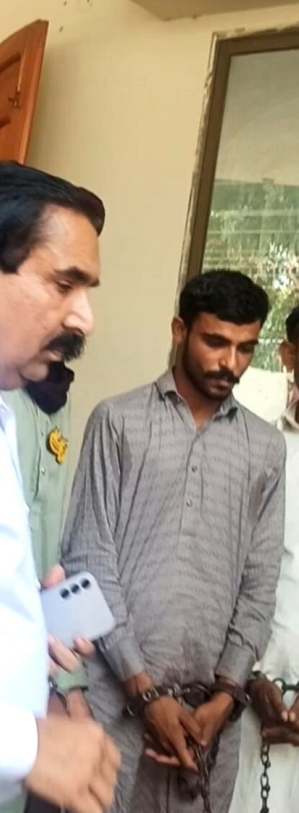
A Christian jailed since June on blasphemy and terrorism charges in Pakistan was released on bail on Oct. 23 after a high court noted glaring loopholes in the police case against him, his attorney said.
Chand Shamaun was arrested on June 23 and charged with insulting Islam under Section 295-A of Pakistan’s blasphemy laws and Section 9 of Anti-Terrorism Act 1997. He was accused of inciting religious tensions Okara, Punjab Province, by threatening to desecrate the Quran, said attorney Javed Sahotra.
A two-judge bench of the Lahore High Court, Muhammad Tariq Nadeem and Syed Shahbaz Ali Rizvi, on Oct. 10 granted the bail petition of Shamuan, a father of two children, ages 5 and 2.
Section 295-A prescribes imprisonment of up to 10 years for “deliberate and malicious acts intended to outrage religious feelings of any class by insulting its religion or religious beliefs.” Section 9 of the ATA relates to “acts intended or likely to stir up sectarian hatred” and is punishable with imprisonment of up to seven years.
Sahotra said that the high court noted that the First Information Report (FIR) registered against the Christian by police Sub-Inspector Haider Ali pointed to police’s mala fide intentions.
“The FIR against my client was registered after a 12-hour delay,” Sahotra told Christian Daily International-Morning Star News. “Moreover, the police complainant was not even present on the scene of the alleged occurrence. There was also no independent witness; the one witness listed by the police was in fact a police informer and is often used as a complainant or witness in false cases. Most importantly, the police did not recover any evidence that directly incriminated Shamuan.”
Noting the discrepancies in the police’s FIR and investigation report, the court ordered the release of Shamuan on bail against a surety of 100,000 rupees ($362 USD), he said, adding that Shamuan was released from jail on Oct. 23.
“Chand is with his family now, but they are not living in their home,” Sahotra said. “They were forced to relocate to a safe-house due to security reasons.”
The attorney added that he had received threats because of his advocacy work for persecuted Christians.
A prominent church leader previously told Christian Daily International-Morning Star News that he believed that Shamuan had been falsely implicated in the blasphemy case.
“The police turned a family dispute into a religious incident when in fact no blasphemy had been committed,” Baptist Bishop of Sahiwal Abraham Daniel previously said.
Under Pakistan’s blasphemy laws, those found guilty of insulting Muhammad can be sentenced to death, though authorities have yet to carry out a death sentence for blasphemy.
Pakistan has witnessed a surge in attacks on blasphemy suspects in recent years. Accusations or mere rumors of blasphemy spark rioting and rampage by Muslim mobs that can escalate into killings.
The United Nation’s Human Rights Committee on Oct. 17 observed that Pakistani authorities have failed to curb a range of human rights violations, including a sharp increase in blasphemy-related violence. Expressing serious concern over frequent attacks against religious minorities, including accusations of blasphemy, targeted killings, lynchings, mob violence, forced conversions, and desecration of places of worship, the committee stated that Pakistani society has become increasingly intolerant of religious diversity.
“Religious minorities are facing a constant threat of persecution and discrimination amid the rise of religious radicalism,” the committee stated.
Meantime, in an open letter to the Commonwealth Secretariat ahead of the Commonwealth Heads of Government Meeting in Samoa on Oct. 21, a coalition of 17 international human rights organizations demanded the suspension of Pakistan from the Commonwealth of Nations due to its blasphemy laws and other rights violations.
The letter reiterated concerns raised by the UNHRC over the increasing abuse of the controversial blasphemy laws.
The letter highlighted Pakistan’s failure to reform its blasphemy laws, stating that while no state-sanctioned executions have occurred, vigilante justice and mob violence have become rampant. It cited at least 85 cases of people accused of blasphemy being murdered before their cases could be heard in court, with many of involving public lynchings and mob attacks.
“The Pakistani government’s inaction has resulted in the deaths of many innocent people, and its refusal to reform these oppressive laws contradicts the values espoused by the Commonwealth,” stated one of the signatories, Willy Fautré, director of Human Rights Without Frontiers.
Pakistan ranked seventh on Open Doors’ 2024 World Watch List of the most difficult places to be a Christian, as it was the previous year.





